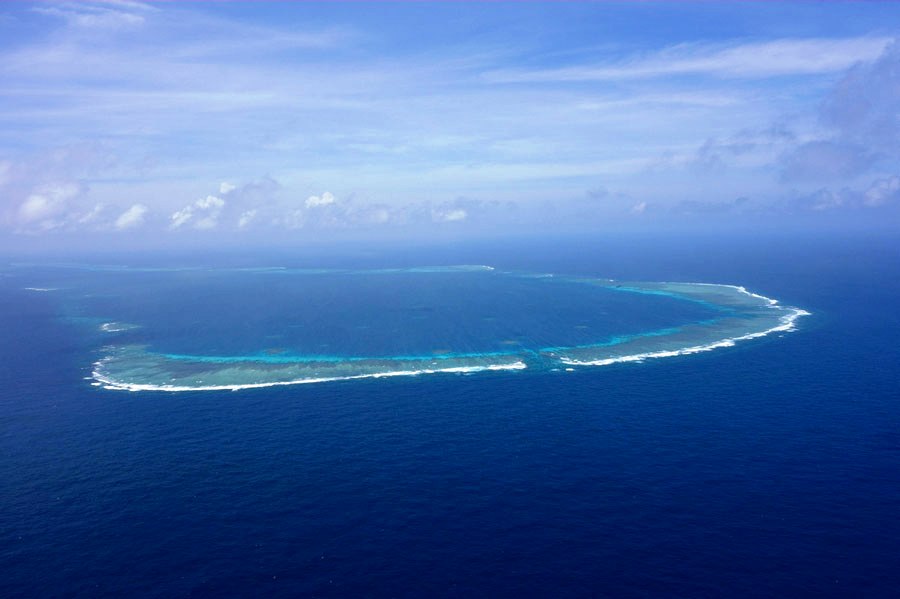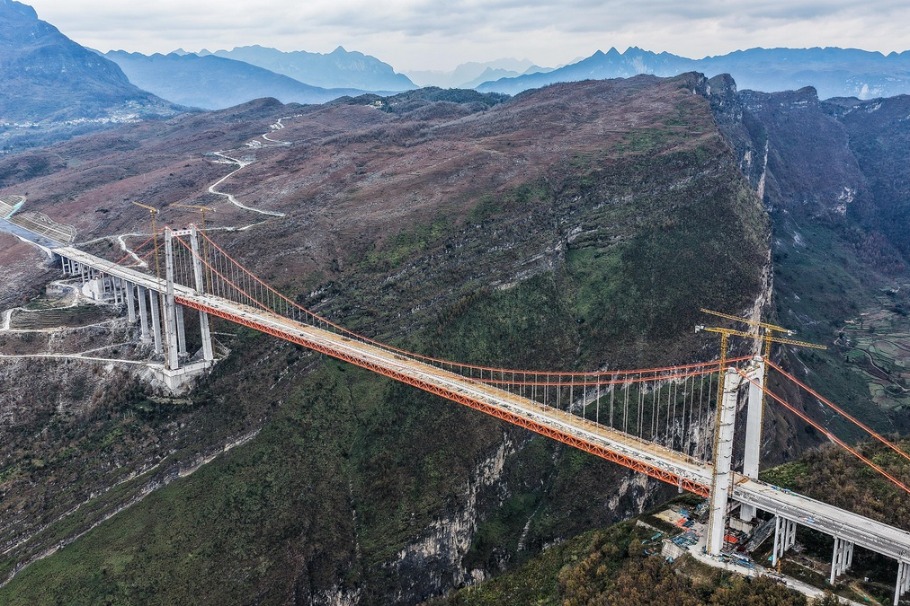Tougher stance on Ren'ai Reef urged


The recent provocation by the Philippines in the South China Sea centering around China's Ren'ai Reef is actually part of collusion by Washington and Manila to play up the "China scare" and further their geopolitical interests, experts said.
Despite repeated warnings from China, the Philippines on Sunday deployed ships seeking to deliver construction materials to the BRP Sierra Madre, a crumbling World War II-era Philippine navy vessel that the country intentionally stranded on China's Ren'ai Reef in 1999 when China was mired in a dispute with the United States over the bombing of the Chinese embassy in the then-Yugoslavia.
Such items are banned from being supplied to the stranded vessel under an agreement reached by China and the Philippines in recent years.
The resupply ships intentionally engaged in dangerous maneuvers and collided with Chinese Coast Guard ships, an act that a Ministry of National Defense spokesman on Friday said "seriously undermines peace and stability" in the region.
Zuo Xiying, an international relations professor at Renmin University of China in Beijing, said that the unlawful Philippine maritime intrusions have intensified in recent years after a honeymoon period between Beijing and Manila.
The deteriorating relations are due to a mix of elements, ranging from domestic Philippine politics to intervention by external forces, including the Southeast Asian country's military ally, the US.
"Philippine diplomacy has increasingly embraced a pro-US stance," Zuo said.
Through such resupply trips, the Philippines is attempting to strengthen its control of Ren'ai Reef, over which China has indisputable sovereignty. "The Philippines is betting that China will be restrained in the face of provocation given the fierce China-US competition," he said, adding that the Philippines wants to trick China into taking countermeasures and depict China as a "regional bully".
Zhang Xiaogang, the spokesman for the Ministry of National Defense, warned on Friday of "necessary measures" to safeguard Chinese territorial sovereignty and maritime interests as the Philippines steps up such provocations.
Zhang said at a news conference that the Philippine side has violated the guiding principles of the Declaration on the Conduct of Parties in the South China Sea, which China signed with the Philippines and other members of the Association of Southeast Asian Nations in 2002.
Yuan Zheng, deputy director of the Chinese Academy of Social Sciences' Institute of American Studies, said as such disputes escalate, the US will face less resistance from inside the Philippines to re-station troops in the country.
Yuan is among a growing cohort of scholars calling for tougher actions toward the illicit resupply trips. He said that China's restrained stance over the past 20-plus years has been misinterpreted by people in the Philippines as a sign of weakness.
"I suggest that China strictly block and restrict resupply of the stranded vessel, and force the Philippine military to withdraw from the Ren'ai Reef for good," he said, adding that it would send a signal to other countries in the region that China has the resolve to safeguard its sovereignty.
Zhu Chenge, an assistant researcher of US diplomacy at CASS, said the recent escalation is part of the Philippines' attempt to use its geopolitical importance to win more resources and bolster its national interests.
"The Philippines is a crucial component in the ring of encirclement that the US is building in the region against China," Zhu said, adding that Manila in recent years has sought to enhance security ties with Washington, but has failed to win a clear-cut commitment from the US that it would come to the Philippines' defense in case of a conflict with China.
- Global mayors learn to carve ice in Harbin
- New burial rules promote eco-friendly rituals, curb high costs
- China-Austria winter carnival kicks off in Shanxi
- China solves 258,000 telecom, online fraud cases in 2025
- China's railway passenger trips exceed 4.5 billion in 2025
- China committed to fostering peace, friendship, cooperation in South China Sea: spokesperson





































